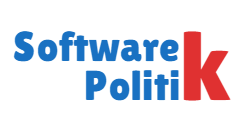For centuries, rural areas were the economic, cultural, and demographic heart of many countries. The countryside was synonymous with life, community, and production. Cities, on the other hand, served mostly as administrative or commercial centers, with smaller and more concentrated populations. However, with the advance of industrialization, that balance began to collapse. The countryside ceased to be a land of opportunity and was gradually pushed into the background, while urban areas absorbed jobs, services, investment—and with them, the majority of the population.
This process, known as rural depopulation, is not new. Nor has it occurred in the same way or at the same pace everywhere. Since the mid-20th century, across much of the world, millions of people have left rural towns for cities in search of better living conditions. The consequences have been significant: loss of public services, an aging population, abandoned farmland, the disappearance of traditional trades, and the erosion of social fabric in many communities. Often, public policy has treated these areas as left-behind territories, without tapping into their full strategic potential.
But something is beginning to shift. Software and digital technology open a window of opportunity to rethink the relationship between rural and urban spaces. In this article—the first in a new series—I want to explore how software can help shape a new narrative for rural life: not as a declining space, but as a land full of potential.
What can software offer a world that moves at a different pace?
According to recent data from Eurostat and the UN, more than 55% of the global population lives in urban areas, a number expected to exceed 68% by 2050. In countries like Spain, for example, over 80% of the population is concentrated in just 20% of the territory, creating deep territorial imbalances. Meanwhile, rural areas continue to lose population, but they are gaining something they previously lacked: connectivity, access to emerging technologies, and visibility in political agendas.
The expansion of rural internet, digital farming initiatives, the rise of remote work, and the relocation of some entrepreneurs to less congested areas are creating new opportunities. Software—in its broadest sense, from agricultural apps to open government platforms and AI applied to farming—can become a powerful tool for changing the rules of the game. But to make this work, we first need to understand the ground we’re trying to cultivate.
What can software offer a world that moves at a different pace?
One of the main challenges when talking about software in rural settings is avoiding the “techno-savior” mindset—the idea that technology alone can undo decades of structural neglect. It’s not just about bringing fiber optics to every village or handing out tablets to farmers. It’s about designing tech solutions tailored to local contexts, with active community participation and an inclusive, sustainable vision.
Software can help a cooperative better manage its production, allow a young rancher to automate part of their work, or enable a rural community to monitor water quality in real time. But it can also support networks of mutual aid, build rural digital identities, or shape public policy through data generated by the communities themselves. The key is to see software not as a product, but as a social and political process.
A conversation that’s just beginning
This article is just the starting point for a much-needed discussion. In the coming months, I’ll delve into topics like internet access in rural areas, the use of open-source software in the countryside, the impact of AI on rural economies, and how open data can empower small communities. I’ll also explore public policies, success stories, and real-world experiences from different regions around the world.
I invite you to think of rural areas not just as places some long to “return” to or visit from the city, but as contemporary spaces that deserve digital tools built from within their realities, not imposed through an urban lens. Because if the future requires us to rethink how we live and produce, then software could be one of the key tools that allows rural communities to once again take center stage.




